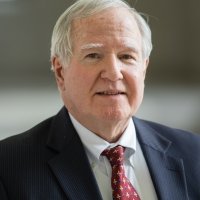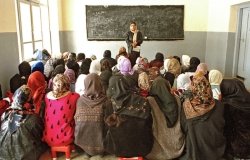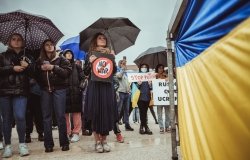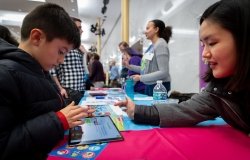America's Top Teachers Focus on Learning and Legislation
Four Albert Einstein Distinguished Educator Fellows discussed current education-related legislation including the Elementary and Secondary Education Act and the America Competes Act.
Overview
As Congress begins to debate new education-related legislation that could have wide-ranging consequences for years to come, the Wilson Center on the Hill convened a panel of Albert Einstein Distinguished Educator Fellows on May 21, 2010 to discuss how these legislative proposals might impact teachers, students, parents and the United States as a whole. As teachers and fellows spending time in different congressional or executive offices, the panelists were able to provide a unique perspective in which they can view potential legislation from both a distance and through the prism of their own classroom experiences. Dubbed “professors of education,” by moderator Kent Hughes, the Director of the Program on America and the Global Economy, the panelists all discussed some of the challenges presented by our educational system and how some of those challenges might be addressed.
First to speak was Marti Canipe, a middle school science and technology teacher in North Carolina who is serving her fellowship in the Office of Polar Programs at The National Science Foundation (NSF). Canipe focused largely on the question of evaluation, both in regards to teachers and students. “How do we define good teachers?” asked Canipe. Furthermore, when discussing student evaluation Canipe acknowledged that testing math and science students solely through multiple choice testing will not give the true measure of how much a student has learned. Instead, Canipe, referring to her students, said that she defines success as whether or not she can, “make them scientific thinkers… get them thinking more deeply than sound-bites.”
The next panelist to speak was Mark Hannum, a high school math and science teacher in the District of Columbia, and fellow in the NSF’s Directorate for Education and Human Resources, Graduate STEM Teaching Fellowships in K-12 Education. Hannum also began by discussing the various methods of teacher and student evaluation. While Hannum didn’t discount the utility of standardized testing as a way of evaluating students and teachers, he said that it should not be the only measure of success. He said that we need broad-based measures that go beyond standardized testing. The most important thing, Hannum said, “is the structure of the measure of success.”
Following Hannum was Steve Obenhaus, a high school science math and science teacher who is serving his fellowship on Capitol Hill in the Office of Senator Joseph Lieberman. Obenhaus began by giving a history of both the Elementary and Secondary Education Act, and the America Competes Act. When discussing the legislation itself, he emphasized that the America Competes Act is an authorization and not an appropriation. Furthermore, when addressing the issues most relevant in Senator Lieberman’s home-state of Connecticut, Obenhaus remarked that the most pressing issue is closing the widening achievement gap among specific groups.
The final panelist was Kristen Edwards, a high school science teacher in Arkansas who is serving her fellowship at the office of education at NASA. Edwards, who started as a Teach for America teacher and simply couldn’t leave her students, provided a number of statistics to best illustrate the context in which she teaches. According to Edwards, 99 percent of her students qualify for free lunch. 6 percent of her biology students passed the state tests, whereas the Arkansas average is 41 percent. 29 percent of her students pass the state literacy test, half the state average. Edwards touched on a number of other pressing topics as well, including; grade inflation, staff recruiting, and retention, local versus state control, and school choice.
Though they each had different experiences to draw upon, both inside the classroom and out, each of the Einstein fellows provided valuable insight as to how to face the monumental challenge of ensuring that our children receive an education that will allow them to be competitive in our global economy. Whether discussing ways to measure student achievement, ways to measure teacher effectiveness or how to help children from low-income areas reach their educational potential, the panelists all spoke to the challenges that our country faces. As Edwards commented, we will only know we are successful when, “…every child has the same access to quality education.”
By: Clark Taylor
David Klaus, Consulting Director, Wilson Center on the Hill
Kent Hughes, Director, Program on America and the Global Economy
Speakers

Kent Hughes
Former Director, Program on America and the Global Economy, Woodrow Wilson Center
Mark Hannum
Kristen Edwards
Marti Canipe
Steve Obenhaus
Thank you for your interest in this event. Please send any feedback or questions to our Events staff.










